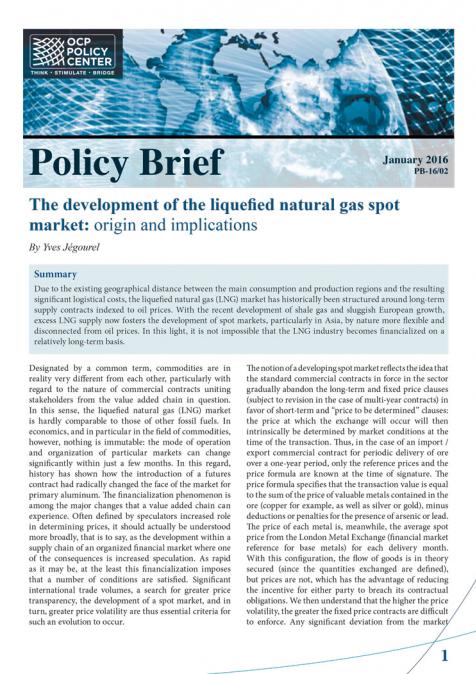Publications /
Policy Paper
Cet article vise à mieux comprendre la relative inélasticité-prix de l’offre de pétrole et tente de démontrer, qu’au-delà du niveau des prix, la volatilité et la structure de marché ont une influence considérable sur la stratégie des firmes productrices tant à court terme qu’à long terme. Pour cela, différentes variables doivent être considérées : la nature du jeu stratégique entre les producteurs dans un contexte d’oligopole, la nature des chocs d’offre ou de demande jouant sur l’arbitrage production/stockage, ainsi que l’ampleur de l’incertitude à laquelle les producteurs doivent faire face lorsqu’ils s’engagent dans une stratégie d’investissement en capacité de production.








